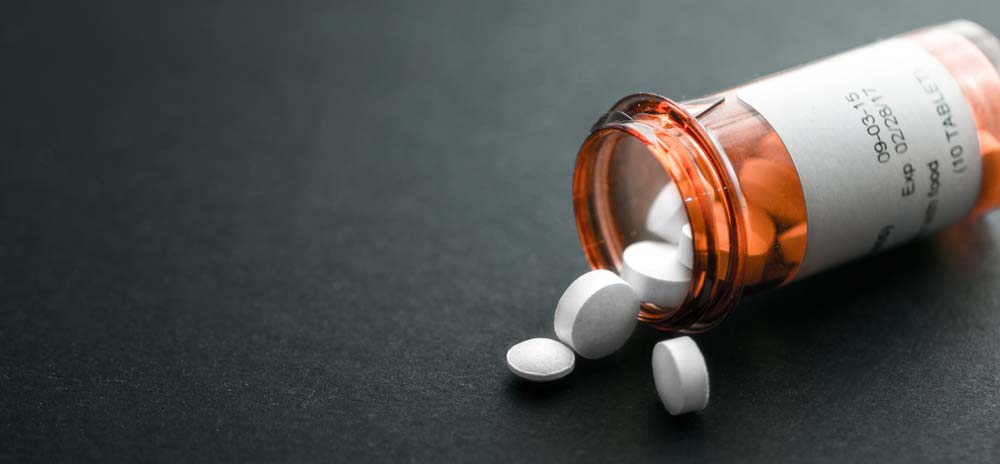Prescription Pills Push Users to Street Drugs
For the last few years, we’ve seen the use of prescription pain killers meet an all-time high, then drop drastically. Across the country, pharmacists, doctors, and medical networks are cracking down on prescription drug misuse. That means restricting prescriptions, ending ongoing prescriptions, and evaluating other ways to help people manage chronic pain.
However, there’s something more concerning. When access to prescription drug use ends for a person, they turn to street drugs. Usually, doctors and medical networks don’t offer people any treatment or assistance in ending dependence on drugs such as codeine or Norco. Both addictive, both when ended abruptly, lead to the use of street drugs.
Why Do Prescription Pain Killers Lead to Heroin Use?
This isn’t a new trend, and it largely has to do with how prescription pain killer is made. In one survey, people were asked from the time of their first opioid use, which they used first: heroin or prescription pills. Through the 1960s up until the 1990s, people reported heroin as their first-used opioid. During the 1990s and ever since that has changed drastically.
The change occurred because of how people gained access to drugs. After the Vietnam war and up until the ‘heroin chic’ phase was over, heroin was generally easy to access. It was plentiful, and very few doctors were prescribing opioids.
In fact, up until the last thirty years or so, opioid medication was either restricted to in-hospital use or was on a limited prescription. Basically, these doctors understood the addictive effect and often believed that people could handle a bit of pain.
However, as prescription opioids became more widely available, there came a new “type” of opioid addiction. The same receptors blocked by heroin are blocked by Fentanyl and other opioid drugs. It results in a similar high, a similar experience, and the same degree of addiction. Now people who receive a prescription that otherwise may never have had access to heroin are turning to heroin when their prescription goes out.
How Did Prescription Pain Killers Overtake Heroin?
As mentioned, people who would not seek out heroin for recreational use are now addicted to opioids. How did we get here? Back in the 1990s, big pharmaceutical companies urged the medical community to consider the option of opioid prescription use. They presented compelling arguments that the medications were in no way addictive.
Was this misleading? Absolutely. Opioid drugs come from the poppy plant opium, which is one of the oldest drugs in history. There’s no chance that the pharmaceutical companies weren’t aware of the highly addictive nature of opioids or that they could differ in any way from opiates.
The widespread misuse of opioid painkillers was rampant by the mid-1990s, and before the mid-2000s, there were frequent overdoses.
Stay-At-Home Orders and Prescription Shortages
Every day about 128 people die of an opioid-induced drug overdose. That includes prescription pain pills, heroin, and synthetic alternatives. It’s a national crisis, and one that was put into severe jeopardy when millions of people were told to stay home, and prescription medication access became scarce.
When people can’t fill their prescription to get their high, or to legitimately treat pain, they look for alternatives. They turn to the next available thing, which for most opioid users is heroin. It’s not even a step-down, it’s just a side-step from legal drug use to illegal drug use.
While many people had to go without their prescription medication, they couldn’t go without the effect. Heroin likely saw a huge surge in use during the stay-at-home orders, not just for recreational use. It’s very likely that people who believe they need their prescription, or who suffer from chronic pain turned to heroin also. It’s a nasty side effect of not helping people develop pain management techniques or to fully recover from an injury.
Can You Start A Full Recovery?
There is never a bad or good time to begin the path to sobriety. If you’ve found yourself saying, “Oh, I’ll start tomorrow,” or “tonight is the last night,” then you’re ready, but you haven’t taken that step. Calling Rehab Carolinas is the first big step for many people. We offer an outpatient care option for people to navigate their recovery with support while living a mostly normal life.
You can manage your opioid detox in a controlled facility then begin your recovery with the proper medical and therapeutic support. Not only are there ways for you to combat the overloading stress of the opioid epidemic, but you can beat the statistics. Schedule your first appointment with Rehab Carolinas now.
